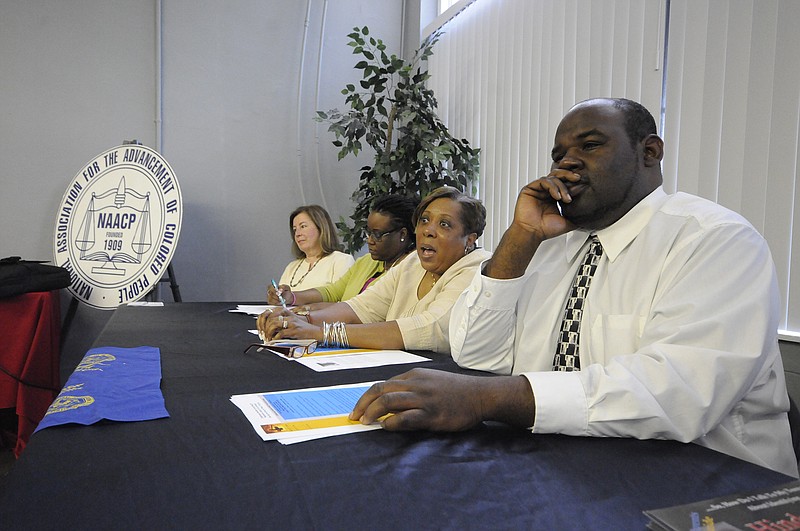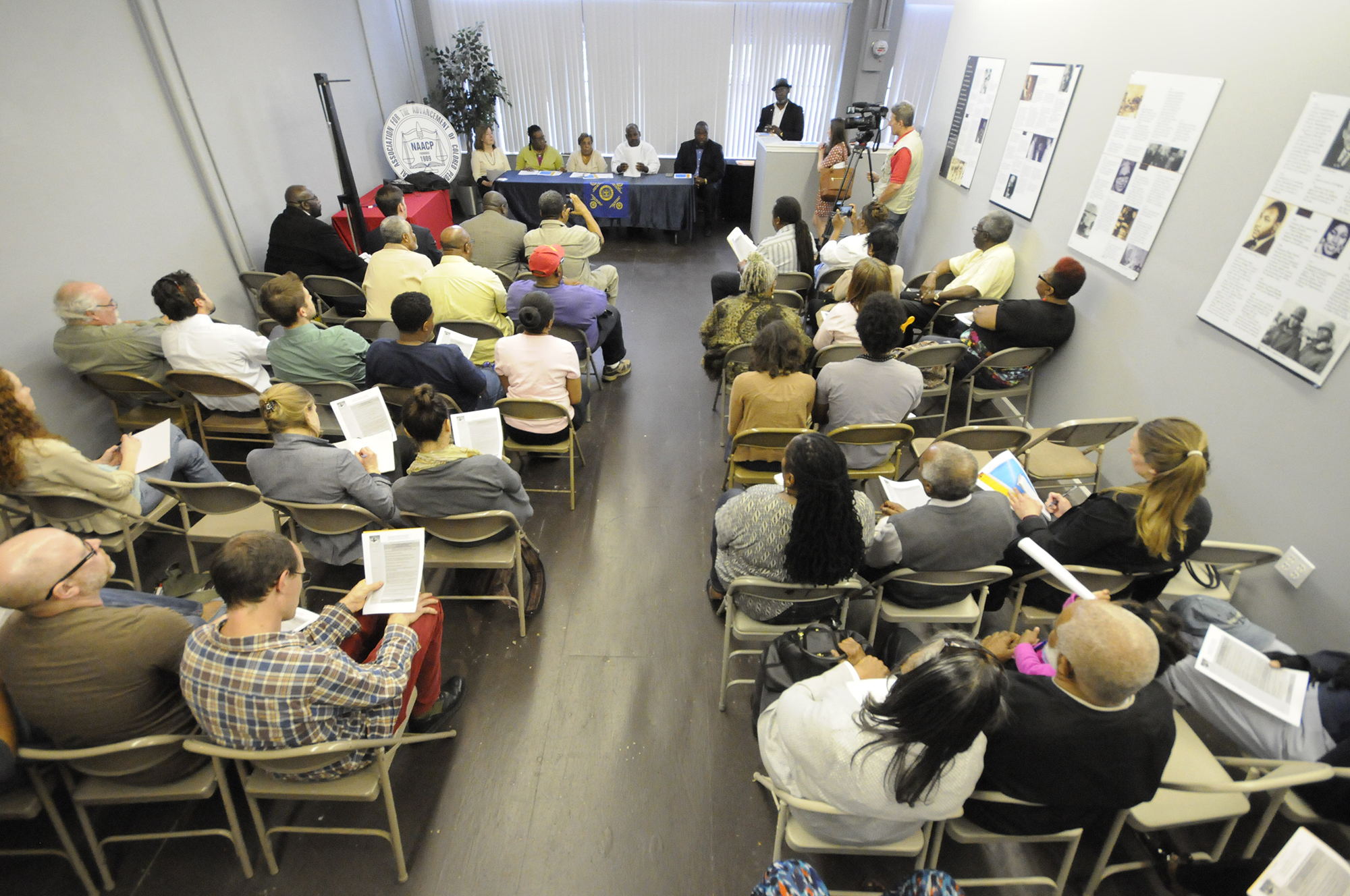Brainerd High School students arrived at the NAACP meeting on Tuesday night proud to display their accomplishments, but they began to leave the meeting in frustration before it even ended.
The NAACP hosted Tuesday night's forum and a five-member panel of Chattanooga community leaders to discuss the so-called "school-to-prison pipeline" and how restorative justice can take place in local schools.
Panel members
* Eric Atkins, branch secretary of the NAACP, and member of the NAACP Committee on Justice * Richard Bennett, CEO of A Better Tomorrow * Lakweisha Ewing, deputy executive director of UnifiED * Jennifer Paden, executive director of Community Reconciliation Inc. * Jennifer Woods, chairperson of the NAACP Education Committee
The school-to-prison pipeline is a term used to describe how many youths go from the school house to the jail house, said Eric Atkins, a member of the NAACP Committee on Justice, who sat on the panel. He said it is difficult for children to break out of the criminal justice system once they are placed in it, and that building bigger prisons will not solve the community's problems.
Panel discussion continued to cover topics regarding what the community can do to stop the mass incarceration of young blacks, and about the systemic changes that panel members said need to take place -- specifically citing zero tolerance discipline policies in schools.
NAACP President Elenora Woods said the organization's intentions were good, and that the forum was the first step toward addressing what she called a systemic community problem.
And the audience of about 75 people attentively listened, occasionally clapping and muttering in agreement.
But the tone of the meeting took a drastic change when the panel began to answer questions from the audience.
Not everyone in the audience agreed with the NAACP's approach.
Brainerd Principal Uras Agee asked the panel why members chose to point out the problems in schools and not mention the successes.
"We focus on the pipeline for success at Brainerd," Agee said as students in the back of the room applauded. "... You have so many issues about the schools, but you're never walking into the building."
Other educators followed in Agee's footsteps, questioning why the meeting was not taking place in a school? Why more student voices were not being heard? And they claimed the NAACP was encouraging negative perceptions of students from urban schools?
Woods told the group that it is the organization's responsibility to meet in grassroots environments such as NAACP headquarters to begin working toward change.
"We are here to protect you," she said, pointing toward the upset students. "... It is our job to find out why [problems like the school-to-prison pipeline exist] and fix it by changing policy."
Jakaira Walker, a senior at Brainerd, said after the meeting that she was frustrated.
"Leaders are attacking the kids in the streets, and they need to invest in us students," she said. "...If they talk with us and listen, we can help them bring change."
Contact staff writer Kendi Anderson at kendi.anderson@timesfreepress.com or at 423-757-6592.

